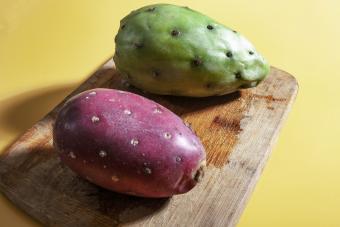
Winter gardening is only successful if you know the average date of the first killing frost in the region in which you live. Crops need to be planted early enough to let them reach full maturity before the killing frost arrives. Local Cooperative Extension offices can provide information pertaining to the average killing frost in your area. The crops listed in this article are particular to regions whose killing frost comes in late October.
90 Day Crops
Plant these crops in mid July for a fall harvest or later if you want a spring harvest.
Root Crops
- Globe onions
- Parsnip
- Carrots
- Beets
- Rutabaga
Leaf Crops
- Fava bean
- Brussels sprouts
- Cabbages
- Cauliflower
60 Day Crops
These crops take 60 days to mature and should be planted by mid August.
Root Crops

- Turnip
- Leek
- Early carrots
- Kohlrabi
Leaf Crops
- Swiss chard
- Collards
- Winter cauliflower
- Early cabbages
30 Day Crops
These crops take 30 days to mature and should be planted by mid September.
Root Crops
- Radishes
- Bunching onions
Leaf Crops
- Broccoli
- Leaf lettuces
- Spinach
Extending The Growing Season
There are many ways to add anywhere from 10 to 15 degrees of warmth to the fall and winter garden by taking advantage of free solar energy from the sun. Many of these season-extenders offer frugal ways to get the most from your garden.
Cold Frames
Planting vegetables in a cold frame is an excellent way to lengthen the growing season. Fall and winter crops flourish in a cold frame and are protected from strong winds and cold night temperatures. Cold frames are very easy to build and once the vegetables are planted they require minimal care. An old window sash makes an excellent cold frame. Build a frame that is 18 inches high in the back and 12 inches high in the front and attach the window sash.
Greenhouses
The greenhouse was originally constructed for the wealthy during the Roman Empire. Today, however, there are countless options when it comes to building your own greenhouse or purchasing a kit to put together.

Greenhouses extend the growing season by protecting plants from harsh weather and making great use of solar energy. Many people grow vegetables year round with the help of a greenhouse and a heater.
Raised Beds
Raised beds are popular amongst gardeners wishing to control soil quality and extend the growing season. Soil in raised beds heats up very quickly, and the bed can be covered with a hoop that protects crops when frost is a threat.
Late Summer Planting Brings Fall Harvest
Planting vegetables in late summer is a great way to maintain sustainability. Succession planting of summer crops when the season permits, maximizes garden space and provides a bountiful fall harvest.







